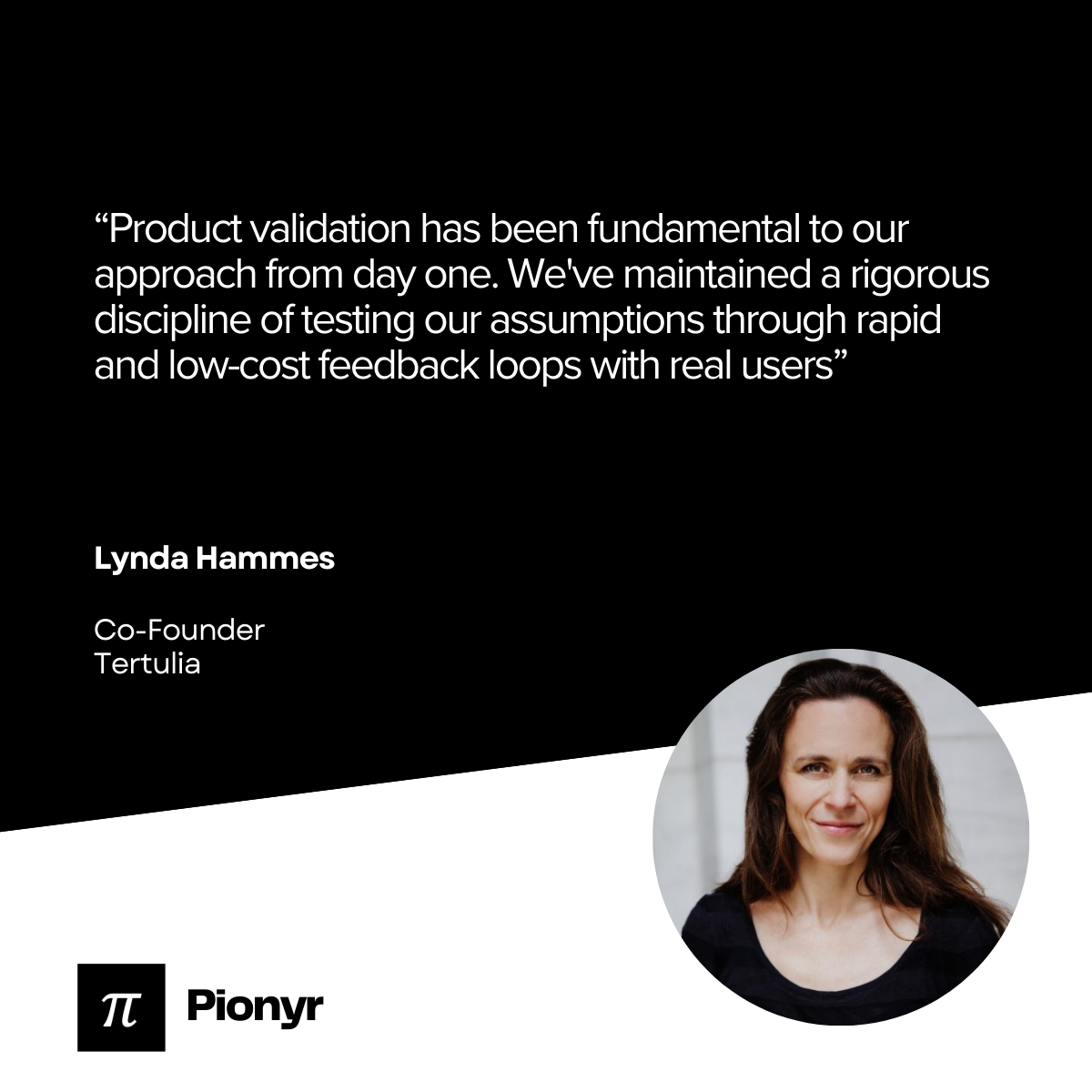What is the one thing that you wish someone told you before you became a founder?
The most surprising aspect of becoming a founder wasn't that it required rolling up my sleeves - I knew that I would be working hard and would need to be very hands on. But after years in leadership roles at established companies, where robust processes and support systems were the norm, I didn’t fully grasp the immersion in day-to-day operations that would be required of being a founder.
You’re simultaneously keeping the lights on and charting the course forward, juggling routine operations while advancing strategy, product and business development.
This reality has been at the heart of tech discourse this past year, with Brian Chesky's advocacy for "founder mode" and Paul Graham's subsequent commentary sparking industry-wide debate. There's plenty of room for debate about when a scaling startup's founder should begin delegating (and ease back on micromanaging).
But one truth remains crystal clear to me: when your product is finding its feet and your brand is yet unknown, there's no substitute for your own intimate involvement with the details. The daily grind can become monotonous, but as co-founders, we’re rolling up our sleeves each day as the essential heartbeat that keeps Tertulia moving forward.
Can you share your experience with testing and iterating on different business models? How have you successfully navigated rapid pivots while maintaining focus and momentum?
Product validation has been fundamental to our approach from day one. We've maintained a rigorous discipline of testing our assumptions through rapid and low-cost feedback loops with real users.
One of our most effective pivot and refinement strategies has been through smoke tests – running targeted ads to measure genuine market interest and testing multiple variations to understand subtle differences in product direction. We’ve done some of these experiments in as little as three days and managed to gain crucial insight—without losing the product team’s momentum.
Early on, we got a lot of value out of incentivized customer surveys, which serve double duty: they helped us validate our feature prioritization while building goodwill with our audience. Customers appreciate being consulted, and the discount they received on Tertulia books was a win-win scenario.
Another valuable learning tool has been running "fake it till you make it" experiments – manually testing product features and services before committing to full software development, as we did with a marketplace to connect book clubs with author special guests. While these experiments require more hands-on effort, they've helped us avoid the costly mistake of building solutions in search of problems. This approach has repeatedly saved us from investing resources in features that looked promising on paper but didn't address real user needs.
Finally, the ultimate product validation is charging for the product! There have been a few times where I have felt hesitant to go to market with a paid service that was clearly imperfect, but it's almost always better to ship something and iterate based on response than to endlessly analyze in search of the perfect model.
What advice would you give to first-time women founders who are struggling to successfully identify a sustainable business model?
Cultivate a network of other founders, especially other women founders who can share their experiences navigating similar challenges. While general startup advice is valuable, having peers who understand your specific context is invaluable.
In communities like Pionyr and Chief, I’ve seen countless examples of founders making introductions to investors, providing emotional support during the inevitable challenging periods, and offering perspective on other founders’ business ideas — and career journeys. I recently connected with a Pionyr member to exchange introductions to relevant contacts, and I serendipitously wound up with a very successful new partnership in the TikTok shop, which was a channel I had all but abandoned pursuing. It’s much easier to get valuable advice and meaningful connections when you’ve cultivated these relationships over time.
At Tertulia, we've taken this a step further by bringing in strategic advisers who have become instrumental to our growth and product development.
Their experience has accelerated our learning curve, which has been essential to identifying a sustainable business model.
Lynda Hammes is co-founder of Tertulia, a new way to discover and purchase books online. Previously, she has held leadership positions in management consulting and media, including the role of Publisher of Foreign Affairs magazine at the Council on Foreign Relations. She started her career in journalism, and has taught journalism classes at NYU and Bard College. Since a young age, she has had a lot to live up to, being named after the star of the ‘70s TV series WonderWoman, Lynda Carter. She currently lives in Brooklyn with her family.
Contact Us
You can reach out at sudeshna@joinpionyr.com.
Let’s get in touch.
